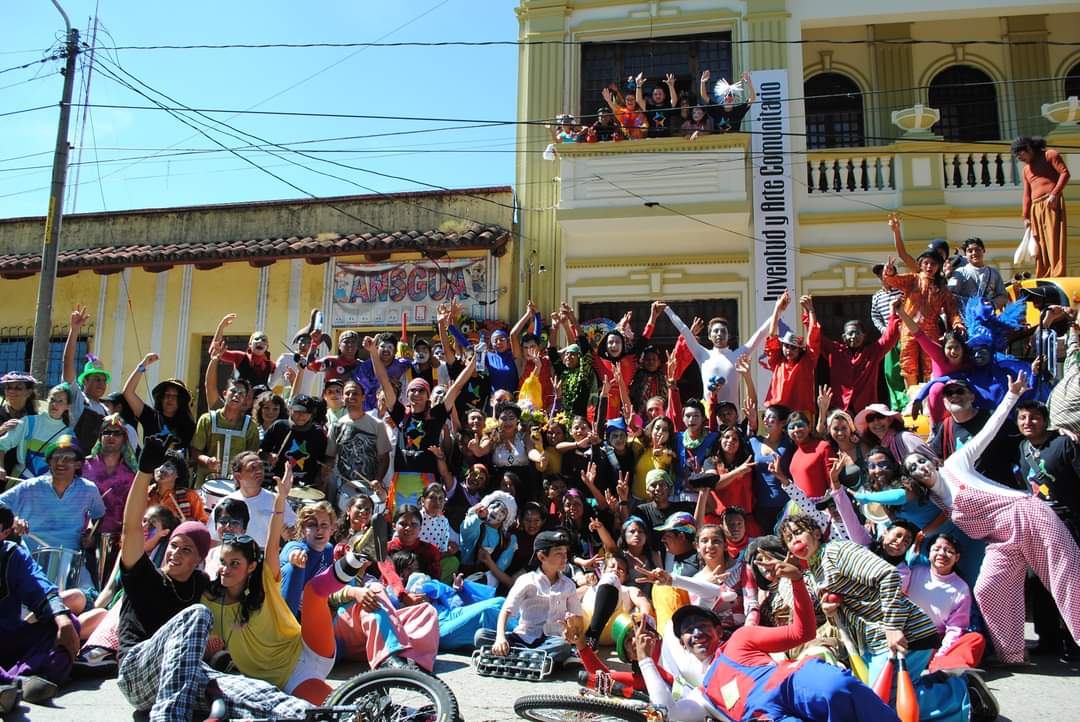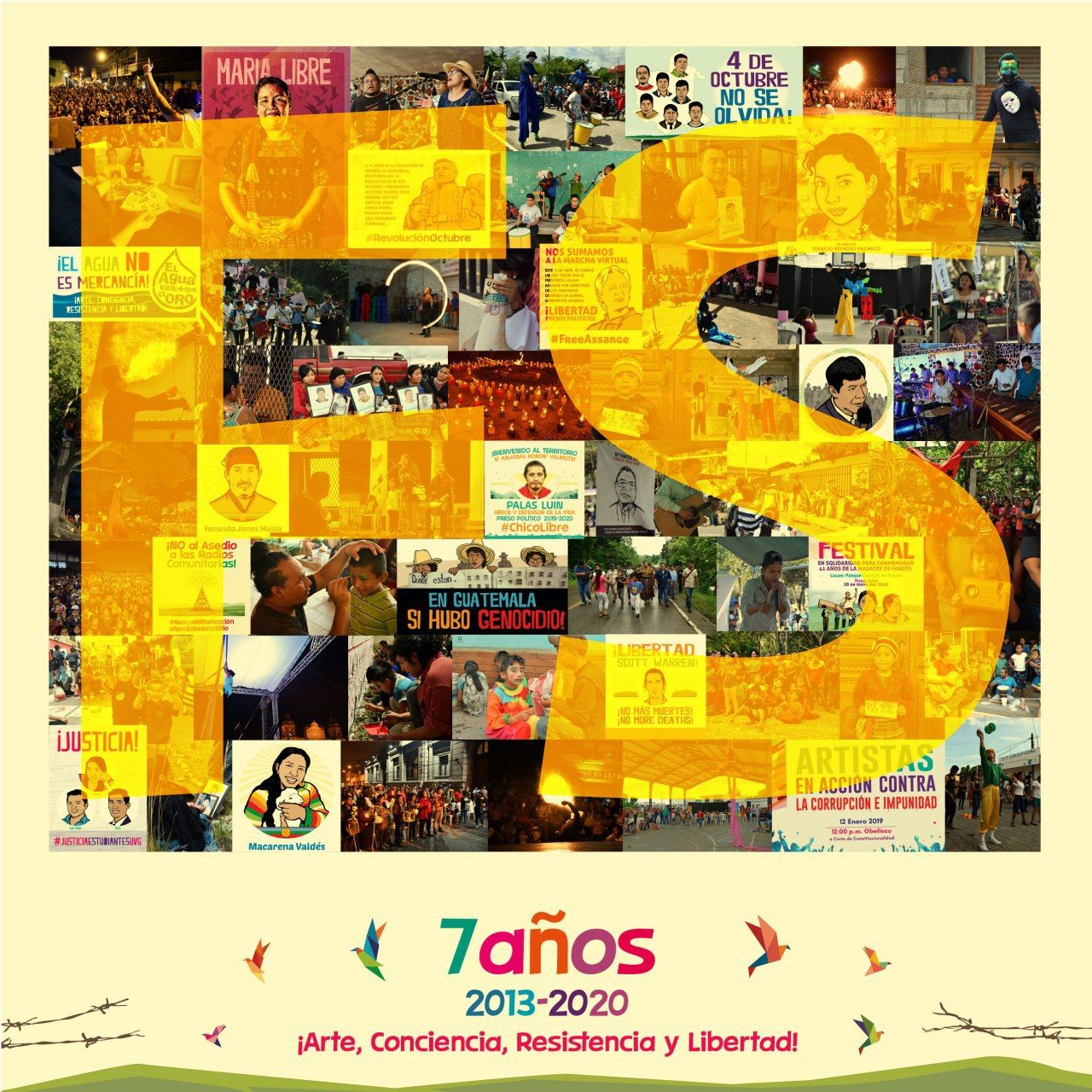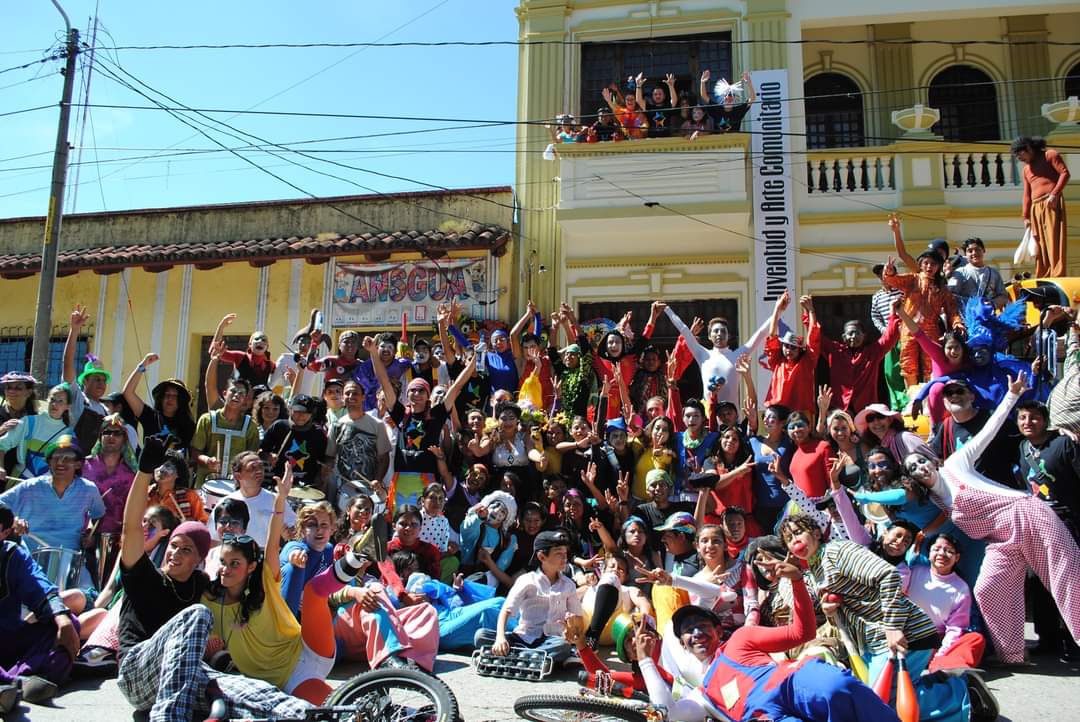¡El Arte no Calla! – Episode 6: Repression and Emancipatory Art in Guatemala

“¡El Arte no Calla!,” a monthly Spanish-language podcast of the Artists at Risk Connection (ARC), explores art, freedom of expression, and human rights in Latin America. In each episode, ARC’s Latin America Representative Alessandro Zagato invites a different guest to help analyze the varying states of artistic freedom in Latin America and the violations that artists and activists are suffering in the region.
Episode 6: Repression and Emancipatory Art in Guatemala
In our sixth episode, ARC sat down with the representatives of two artistic, cultural, and human rights organizations based in Guatemala. In the first segment, Catalina Garcia* reflects on the community-oriented activities of Caja Lúdica, an organization that develops processes of collective emancipation and healing in urban and rural communities through the arts. In the second segment, Lucia Ixchiú of Festivales Solidarios discusses the attacks suffered by her independent collective as a result of their commitment to Indigenous peoples’ resistance and their outspoken criticism of extractivism and territorial dispossession.
Alessandro Zagato: What does Caja Lúdica do as an arts and human rights organization? That is, what is your vision?
Catalina Garcia: Our aim is to create spaces for peaceful living and sharing in neighborhoods and communities through education and development processes that are based on a playful methodology of participatory action and transformation. Our aim is to introduce art into classrooms, families, and communities; contribute to nonviolence, the recuperation of self-confidence; and promote social relations based on affection, respect, and solidarity. Art is the excuse to generate spaces that help us re-signify our perception and imagination, promote critical thinking and contribute to the reconstruction of a social fabric based on human rights, gender equality, nonviolence, and historical memory. It is more than 20 years since we developed this project together with our network in Central America.
A.Z.: What role can art play for human rights in a region shaped by violence and repression, one that has lived through an armed conflict and deals with widespread trauma?
C.G.: An important role that art can play has to do with the defense of life, the reconstruction of life imaginaries, and of the way we relate to each other. Art is important when it comes to supporting fundamental rights like health, life, and individual and collective expression. In a country that was silenced, violated, and where people’s life is shaped by fear, art can play the role of disinhibiting, connecting with profound parts of the self and with your closest territory––your body. Art also allows us to co-create and bring up proposals that benefit community work and our own living conditions. This year we have been developing virtual processes with teachers and women from the municipality of Huehuetenango, working on sexual and reproductive rights, because during the pandemic gender violence has soared. We have also been working on the topic of emotional management, which is so important in times shaped by the lockdown and social distancing. Art can offer us new perspectives on life, including hope, new practices, new ways of resolving problems, and of course awareness.
“In a country that was silenced, violated, and where people’s life is shaped by fear, art can play the role of disinhibiting, connecting with profound parts of the self and with your closest territory––your body.”
— Catalina García
A.Z.: Concretely, what types of methodologies do you employ and what type of response do you receive from the groups you engage with?
C.G. A key part of our methodology consists in starting from practice with the aim to enhance creativity. It is an approach based on our bodies and sensibilities, aimed at rediscovering one’s self, one’s own process of identity construction. It also relates to the idea that gender is constructed – therefore we break with stigma, norms, and roles that were imposed on us. Starting from this process of awareness, people can envision and decide what they really want, the way they want to live, and how they want to develop. A playful methodology helps people to express their feelings and to recognize them. With the distances and logistical barriers that the pandemic has imposed on us, we have tried to do all this through virtual platforms. Previously, we were always doing practical and face-to-face community work, starting from the necessities and specificities of each group we approached. Theater has always been an amazing tool to engage with people and develop our methodologies. Indeed, it allows attitudes to change, it breaks the barriers of fear and it enhances capacities – with the result that young people start speaking more and more openly, women become empowered, and human relations become more healthy and respectful.
A.Z. A last question has to do with the pandemic, which has radically changed the way we work. Starting from your experience, do you have any recommendation for other human rights organizations and artists?
C.G.: I think we need to be highly creative and look for any possibility of co-creation available under the present conditions. We need to not lose communication with people in a time where interpersonal contact is more important than ever. In a time where everything is losing its magic, we do not have to lose the opportunity to bring people together in spaces of communication. Sometimes people experience a lot of silence, separation, and anxiety, so it is important to generate spaces where people can manifest their feelings, where they can play and take advantage of new opportunities to use their bodies. We need to be resilient and have a practice of comprehension and love, to get together and vibrate together. We need to facilitate encounters that make us feel like we are not alone, through awareness and care.

Alessandro Zagato: Could you tell us about the activities you have developed with Festivales Solidarios, and about your working perspective?
Lucia Ixchiú: Festivales Solidarios is a collective from Guatemala composed of artists, women, and men of Indigenous and mestizo origins. We work on different topics such as historical memory, the defense of territories and environments, repression, and political prisons. This last point closely relates to the genesis of our collective, which was created in 2013, as many of us were active in the students’ movement. On April 4, 2012, the Guatemalan Army massacred the community of Totonicapan, directly attacking our Indigenous organization “48 Cantones.” After that tragic event, we decided to create a space for denunciation. We decided to support the Indigenous movement, denouncing violence and political imprisonment through the arts. We focused on the criminalization of Indigenous peoples, especially those defending their territories, and on mother earth. Initially we were doing artistic interventions in the streets. In time, we started to be contacted by Indigenous organizations asking to support them in different ways, including the organization of campaigns and festivals in rural and urban areas. It is also important to mention that we are a self-managed collective. This has been difficult, but it has also given us plenty of freedom with respect to our activities and the topics we want to deal with, which are obviously opposed to the status quo.
“This country knows no other approach than violence, and we want to construct an alternative from a different place: from the arts, music, photography, and color. Fighting from a different place than pain and suffering means decolonizing thinking, decolonizing action.”
— Lucía Ixchiú







